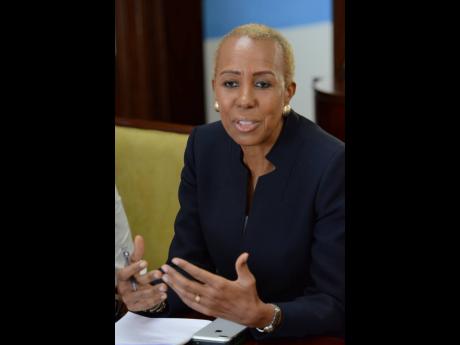Scrap it!
JTA president wants end to current placement system for high school
The current method of placing students into secondary schools should be scrapped, said President of the Jamaica Teachers’ Association (JTA), Jasford Gabriel, who declared that it is a breeding ground for inequity in the education system.
Students entering grade seven at high school are placed based on their Primary Exit Profile scores. Those with the highest scores are usually placed in schools with the best resources and educational outcomes.
“This placement system is a philosophy that holds one set of students superior and another inferior, and it must be totally discredited and abandoned,” Gabriel stated during a church service at the Sharon Baptist Church in St Elizabeth on Sunday.
The church service marks the beginning of Education Week, being celebrated under the theme ‘Bridging the digital and social divide, transforming education for economic growth and sustainable development’.
The JTA president said it is one of the top two issues bedevilling the education system.
Gabriel said the inequities in the education system are being exacerbated by the ongoing COVID-19 pandemic.
The other, he said, was the need to “inspire, properly remunerate and retain our best teachers. After all, whether we accept it or not, teachers are the most critical players in the drive to raise the levels of literacy, numeracy, skills development, and character formation”.
Minister of Education, Youth and Information Fayval Williams, earlier in the service, said students will soon be exposed to character development modules in the classroom.
“We have to transform education, not only for economic growth and sustainable development, but for social development as well,” the minister said.
Williams added that many children are brutally mistreated in their homes, leading most of them to become monsters in the country.
“We have a society in which the Child Protection and Family Services Agency gets over a thousand cases of child abuse every month. That is one in every 40 children, or one child in every class across Jamaica.
“When we treat children like that, what do you get by the time they turn into adults? A society in which there is too much lawlessness. The children who were abused, in turn abuse their children,” Williams argued.
Not only will character education become a part of the curriculum, Williams shared, but there will be a test component to send a signal about its importance.
“We have no choice but to introduce character education in schools,” Williams stressed, underscoring that children spend 63 per cent of their time with teachers by the time they reach 18 years of age.
“Character education will teach students how to interact properly with teachers and other students in and out of the classroom. School is the perfect place to teach character education,” Williams contended.
Gabriel said the JTA fully endorsed the move to introduce character education in schools, saying “the world is filled with many bright people, but we are sinking further and further in moral decay and decadence”.


